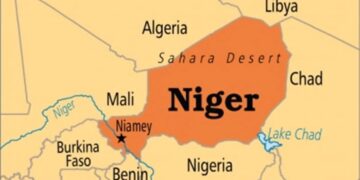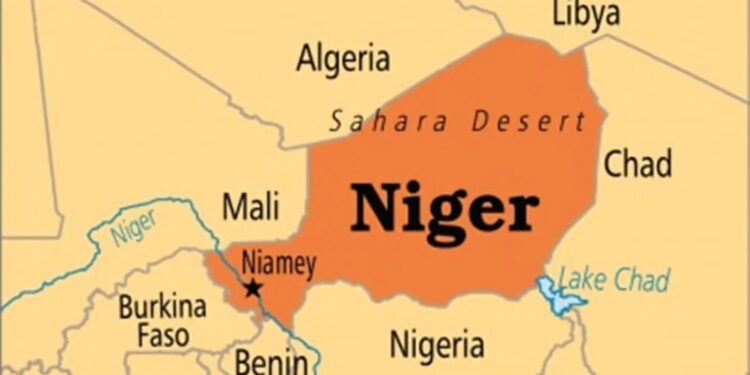By John Ikani
No fewer than 29 Nigerien soldiers have lost their lives in a jihadist attack.
This marks the deadliest attack since the military took control through a coup in July.
The defence ministry disclosed that the assailants, numbering in the hundreds, were jihadists employing “improvised explosive devices and kamikaze vehicles.”
In a swift response, the military launched a counter-offensive near the Mali border, resulting in the elimination of “several dozen terrorists.”
It is worth noting that the frequency of jihadist attacks on the army has surged since the military seized power. The coup leaders claimed their actions were driven by the deteriorating security situation under President Mohamed Bazoum’s government.
In addition, France has decided to withdraw its contingent of 1,500 troops from Niger by the end of the year, a decision influenced by pressure from the junta.
The French forces have been actively combatting the insurgency that spilt over from Mali back in 2015.
The situation escalated to the point where France’s ambassador had to depart Niger last week, following a lengthy blockade of the French embassy under the junta’s orders.
Niger’s military has declared a three-day national mourning period following the devastating attack in the western Tahoua region on Monday night.
The army had been conducting operations to neutralize the threat posed by al-Qaeda and the Islamic State (IS) group when they came under attack.
According to the defence ministry, communications from the terrorists were intercepted, and it’s noted that the attackers had “benefited from outside expertise,” although specific details remain undisclosed.
The recent surge in jihadist attacks within Niger has been attributed to a security void created when troops were reportedly recalled to the capital, Niamey, to safeguard the coup leaders.
Just last week, hundreds of militants on motorcycles killed 12 soldiers in the south-western region. Also, in a separate attack near the Burkina Faso border last month, at least 17 soldiers lost their lives.
Neighboring Mali has also witnessed a sharp increase in jihadist and rebel violence since the withdrawal of French troops and the gradual reduction of UN peacekeeping operations, as requested by the junta.
To address this challenge, Mali has turned to the Russian mercenary group Wagner for assistance.
In response to the shared threat, military leaders from Mali, Burkina Faso, and Niger recently signed a security pact, pledging mutual support in the fight against militants and external aggression.
The alliance aims to bolster the region’s collective efforts to maintain stability in the face of growing security challenges.


































